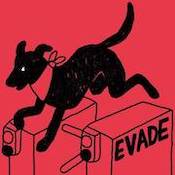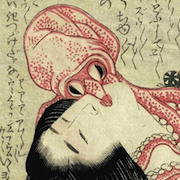|
I guess Dune is built around examining the things we do to survive. The desert hawk eats carrion, the Fremen drink poop water, and the nobles have all their kanly forms to obey. Dune asks us to consider which of these we consider more or less good or disgusting, and why. Herbert keeps asking if ecological drives and pressures are tools for humans to use, or laws for humans to transcend, or an inescapable tragedy to which we can only respond by singing something sad with our baliset.... Meanwhile LotR was written by a WW1 veteran. Tolkien came from a civilisation that had also asked "what shall we do to survive?" and decided the answer was to spend half a decade funnelling a few million of their best and brightest into an industrial meat grinder, as efficiently as possible. The West's pursuit of power, efficiency, knowledge and order had culminated in a sixteen year olds coughing up their lungs as green foam in a muddy hole somewhere. So Tolkien hunts for alternatives. He knows, in a visceral sense, that "survive" is not enough. Tolkien loves- well- the star and the soil, high transcendent beauty and the simple earthly happiness of eating a huge pile of food in a pub with a few friends. A civilization which has ceased to value these things isn't a civilization at all: it has become pragmatic and organised and powerful, aka, Mordor. So I can see why Tolkien disliked Dune. There is no happiness in Dune. No one enjoys a meal (except for the baron, prior to his "pleasures") and no one finds the stars beautiful (except possibly Leto, once) and no one celebrates together (except for the Fremen, after murdering a bunch of enemies.) Dune's characters spend the whole book seeing through everything and wind up blind; it is a cast of Sarumans and Saurons. I imagine Tolkien found Dune to be a 300-page exploration of what the trenches had already taught him: humans need more than survival.
|
|
|
|

|
| # ? May 29, 2024 02:07 |
|
The ideas in LOTR were being formed in the 1910s and 1920s Herbert wasnít even born until 1920
|
|
|
|
Tolkien had kind of odd taste in sci-fi. He liked Asimov, Voyage to Arcturus, and Death of Grass, which three have about loving nothing in common.
|
|
|
|
Tree Bucket posted:I guess Dune is built around examining the things we do to survive. The desert hawk eats carrion, the Fremen drink poop water, and the nobles have all their kanly forms to obey. Dune asks us to consider which of these we consider more or less good or disgusting, and why. Herbert keeps asking if ecological drives and pressures are tools for humans to use, or laws for humans to transcend, or an inescapable tragedy to which we can only respond by singing something sad with our baliset....
|
|
|
|
Tree Bucket posted:I guess Dune is built around examining the things we do to survive. The desert hawk eats carrion, the Fremen drink poop water, and the nobles have all their kanly forms to obey. Dune asks us to consider which of these we consider more or less good or disgusting, and why. Herbert keeps asking if ecological drives and pressures are tools for humans to use, or laws for humans to transcend, or an inescapable tragedy to which we can only respond by singing something sad with our baliset.... Well said.
|
|
|
|
Tree Bucket posted:I guess Dune is built around examining the things we do to survive. The desert hawk eats carrion, the Fremen drink poop water, and the nobles have all their kanly forms to obey. Dune asks us to consider which of these we consider more or less good or disgusting, and why. Herbert keeps asking if ecological drives and pressures are tools for humans to use, or laws for humans to transcend, or an inescapable tragedy to which we can only respond by singing something sad with our baliset.... I saved a copy.
|
|
|
|
Tree Bucket posted:I guess Dune is built around examining the things we do to survive. The desert hawk eats carrion, the Fremen drink poop water, and the nobles have all their kanly forms to obey. Dune asks us to consider which of these we consider more or less good or disgusting, and why. Herbert keeps asking if ecological drives and pressures are tools for humans to use, or laws for humans to transcend, or an inescapable tragedy to which we can only respond by singing something sad with our baliset.... I think Tolkien was just angry he didn't come up with Amam pussy magic first.
|
|
|
Bubblyblubber posted:I think Tolkien was just angry he didn't come up with Amam pussy magic first.
|
|
|
|
|
Nessus posted:Or did he? Consider the elf tentacles. Avatar/post combo the likes of which even GAWD has never seen
|
|
|
|
lotr is about individuals dune is about communities
|
|
|
|
The Individuals of the Ring
|
|
|
|
skasion posted:The Individuals of the Ring yes. i have been thinking about the good post. it is a fellowship, of members, and through acts of individual heroism the world is saved. in dune generations of fremen save and store water, for the future of their planet. the bene gesserit are basically a collective consciousness, and again, long term planning. one of the biggest points hammered home by herbert is that acts of individual heroism can have negative consequences that are completely unpredictable.
|
|
|
|
You'll have to toss me!
|
|
|
|
Heather Papps posted:yes. Middle-earth is not saved through acts of individual heroism. Itís saved by God. Frodoís heroic resolve was all for nothing in the end. He fails and falls to evil. Only the fundamentally benevolent character of the social hierarchy in which he was raised got him that far on his servantís back, and his servant only got that far because God impelled nations to sacrifice themselves in a hopeless war against a superior enemy. Frodoís individual choices totally failed to effect the change he set out to effect, and it was thanks to the higher power that backed him that he didnít just ruin everything. The price of this is his permanent alienation from his culture, an alienation that can be wiped away only by escape from the cursed world into a sacred space.
|
|
|
|
Oddly enough I feel this discussion gives me a better appreciation for both Dune and LOTR.
|
|
|
|
skasion posted:Middle-earth is not saved through acts of individual heroism. Itís saved by God. Frodoís heroic resolve was all for nothing in the end. He fails and falls to evil. Only the fundamentally benevolent character of the social hierarchy in which he was raised got him that far on his servantís back, and his servant only got that far because God impelled nations to sacrifice themselves in a hopeless war against a superior enemy. Frodoís individual choices totally failed to effect the change he set out to effect, and it was thanks to the higher power that backed him that he didnít just ruin everything. The price of this is his permanent alienation from his culture, an alienation that can be wiped away only by escape from the cursed world into a sacred space. individual efforts of beings with agency, combined to produce a desired result, but yeah i feel this. the post about survival versus a good life is what i'm really focusing on - the idea that the choices we make on an individual level, that seem moral and right at the time, when compounded over time can have overwhelmingly negative effects. the story of lotr is about these folk going on a journey, and affecting change for good. the whole arc of dune is about groups of people doing the same thing on a larger scale, but recognizing that these micro choices of good and evil have very little effect on the broader reality. or something. i dunno. i like them both.
|
|
|
|
I like them both too. I just feel like both are about both communities and individuals, I donít think theyíre fixated on one to the exclusion of the other. I think itís telling that both end with the protagonist saving the day and beating their enemies and...totally detached from society and no longer able to live well.
|
|
|
|
oh they are both masterpieces and neither is about a singular thing. i am also considering all the dune books written by big poppa sandworm in this conversation, and i really should think about all the canon of middle earth if i really wanna try and figure out opposing ideas. i think the "tolkein was a catholic linguist" and "frank was a weird journalist" is really as concrete as things can be. both of these men lived long lives and wrote over the span of them, and the idea that a central thesis can be distilled from a humans totality of life is a fool errand, but baby, i'm a fool. ďA stone is heavy and the sand is weighty; but a fool's shitpost is heavier than them both.Ē
|
|
|
|
skasion posted:I like them both too. I just feel like both are about both communities and individuals, I donít think theyíre fixated on one to the exclusion of the other. I think itís telling that both end with the protagonist saving the day and beating their enemies and...totally detached from society and no longer able to live well. Given both authors would have lived among war veterans, Tolkien being one himself, I feel that was probably inspired by life to at least some extent. Probably no coincidence that Paul and Leto II both find themselves in the position of God, and pretty much immediately realise that's going to make their lives miserable if they retain any real sense of responsibility. While Frodo struggles with a horrible burden that actively brings out all of his worst traits, with Gollum as a pretty unsubtle mirror of what that burden can and will do to him given nothing but time, and ultimately does manage to get 99.9% of the way there with herculean effort on his part and that of his allies and by the grace of God manages to luck into victory. Either way I think it points to that being the protagonist of an adventure story is almost certainly the kind of thing that taken remotely realistically makes you end up with PTSD.
|
|
|
|
Bijaz
|
|
|
|
*snorts an absolute poo poo ton of spice such that my eyes become depthless wells of blue darkness and I see all paths into the future and time and space are as nothing to me and all mortal considerations are secondary and wheels within wheels of terrible purpose wake within me and ideas never before conceived begin to swarm to the surface of the id* Rhyming midgets.
|
|
|
|
skasion posted:*snorts an absolute poo poo ton of spice such that my eyes become depthless wells of blue darkness and I see all paths into the future and time and space are as nothing to me and all mortal considerations are secondary and wheels within wheels of terrible purpose wake within me and ideas never before conceived begin to swarm to the surface of the id* Oompa-Loompa doopety doo...
|
|
|
|
Ghost Leviathan posted:Oompa-Loompa doopety doo... What do you get when you guzzle down spice? Naming yourself after the jumping mice. You know the ultimate meaning of life. You must make jihad right now!
|
|
|
|
One Spice to rule them all, One Worm to find it, One planet to bring them all, and in the desert bind them
|
|
|
|
A DUNE Haiku A desert planet goes by the name Arrakis gently caress am I thirsty
|
|
|
|
Bubblyblubber posted:I think Tolkien was just angry he didn't come up with Amam pussy magic first. 
|
|
|
|
https://www.youtube.com/watch?v=W09rrriWtp8 lol
|
|
|
|
skasion posted:Middle-earth is not saved through acts of individual heroism. Itís saved by God. Frodoís heroic resolve was all for nothing in the end. He fails and falls to evil. Only the fundamentally benevolent character of the social hierarchy in which he was raised got him that far on his servantís back, and his servant only got that far because God impelled nations to sacrifice themselves in a hopeless war against a superior enemy. Frodoís individual choices totally failed to effect the change he set out to effect, and it was thanks to the higher power that backed him that he didnít just ruin everything. The price of this is his permanent alienation from his culture, an alienation that can be wiped away only by escape from the cursed world into a sacred space. I thought the god of LOTR setting was AWOL, and the "angels" like Gandalf were just continuing their initial orders.
|
|
|
|
Johnny Aztec posted:I thought the god of LOTR setting was AWOL, and the "angels" like Gandalf were just continuing their initial orders. No, heís constantly active but mostly just in a providential way rather than by like, showing up in a fiery chariot and hurling thunderbolts. (mostly anyway, thereís at least one moment of obvious divine intervention when the sea-wind suddenly drives Sauronís magic darkness away at the siege of Gondor). Because of how LOTR is written one could interpret it totally skeptically, such that God actually isnít doing anything at all and Gandalf and Elrond are just gaslighting Frodo into thinking heís been divinely ordained for this task, but that would be stretching the text quite a bit, not to mention that it would also be really hosed up.
|
|
|
|
sing in harmony or discord
|
|
|
|
Really interesting stuff, I enjoy this discussion. Fascinating to compare them!
|
|
|
|
priznat posted:Really interesting stuff, I enjoy this discussion. Fascinating to compare them! book club rules
|
|
|
|
Johnny Aztec posted:I thought the god of LOTR setting was AWOL, and the "angels" like Gandalf were just continuing their initial orders. No illuvatar and the valar are driving events . Free will and individual acts still matter tho
|
|
|
|
is there a gbs lotr thread yet?
|
|
|
|
Heather Papps posted:is there a gbs lotr thread yet? you're in it
|
|
|
|
Anne Frank Funk posted:you're in it i had an inkling
|
|
|
|
threads within threads
|
|
|
|
skasion posted:Middle-earth is not saved through acts of individual heroism. It’s saved by God. Frodo’s heroic resolve was all for nothing in the end. He fails and falls to evil. Only the fundamentally benevolent character of the social hierarchy in which he was raised got him that far on his servant’s back, and his servant only got that far because God impelled nations to sacrifice themselves in a hopeless war against a superior enemy. Frodo’s individual choices totally failed to effect the change he set out to effect, and it was thanks to the higher power that backed him that he didn’t just ruin everything. The price of this is his permanent alienation from his culture, an alienation that can be wiped away only by escape from the cursed world into a sacred space. It's both, individual heroism and bravery is necessary to save the world, but it is not sufficient. This reflects Tolkien's religious views that for all the many noble and worthwhile things about people, they ultimately fail without divine grace and mercy. Eru Ilķvatar is constantly intervening in small ways (and one very big way) to help the inhabitants of Middlearth. I believe Tolkien outright said that Eru made Gollum trip which saved the world, but he was only willing to intervene, in this seeming small way at the point of failure, because of the work that Frodo and Sam did to get there and they resisted corruption for so long. The really big divine intervention is that Gandalf died, but was sent back to finish his tasks. Resurrection more or less had to have come from Eru, but I don't think it would have happened if Gandalf hadn't died serving faithfully. Wizards are interesting since they are both part angel proxy and party human. They are permanently old to remind them of their place in in cosmology and discourage corruption, but they have all the weaknesses of men.
|
|
|
|
Eru and the other valar also set up the council of Elrond And of course got Bilbo to find the ring. And countless other things.
|
|
|
|

|
| # ? May 29, 2024 02:07 |
|
Shaddak posted:What do you get when you guzzle down spice? still the best thread in gibbis  
|
|
|






































